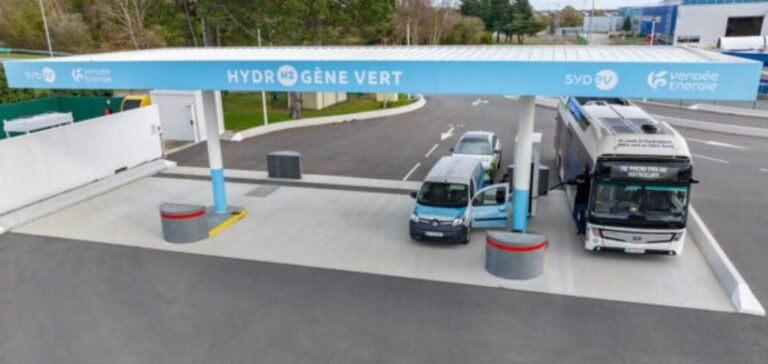The Infrastructure Bank of Canada (IBC) announces a $337 million investment in partnership with HTEC, a Vancouver-based company specializing in hydrogen supply solutions. This investment is aimed at accelerating the deployment of hydrogen production and refuelling infrastructure British Columbia and Alberta. This partnership will make it possible to build up to 20 hydrogen refuelling stations and three new production facilities, thereby helping to reduce greenhouse gas emissions in the region. HTEC’s H2 Gateway program, supported by this investment, involves the construction of a comprehensive, sustainable fuel supply chain focused on reducing emissions. New production facilities will be located in Burnaby, Nanaimo and Prince George, with a 15-t/d by-product liquefaction plant in North Vancouver. Once fully operational, this network of refuelling stations could reduce emissions from the transport sector by 133,000 tonnes annually.
Economic impact and employment
CIB’s investment is expected to generate more than 280 full-time jobs during the construction and operation phases of the hydrogen infrastructure. Ehren Cory, CEO of CIB, said, “Our partnership creates the ideal conditions for HTEC to expand its operations aimed at reducing greenhouse gas emissions in the transport sector.” The H2 Gateway program, estimated at $900 million, focuses on the creation of hydrogen transportation ecosystems, promoting the adoption of hydrogen as a transportation fuel in targeted regional centers. This project marks CIB’s third intervention in its Charging and Hydrogen Refuelling Infrastructure (CHRI) initiative, which aims to expand private-sector deployment of hydrogen charging and refuelling infrastructure on a large scale.
Government support and sustainable development
Representatives of the British Columbia and Canadian governments hailed the investment as an important step towards the energy transition. Jonathan Wilkinson, Minister of Energy and Natural Resources, highlighted the remarkable progress made in Canada’s hydrogen landscape since the publication of the Canadian Hydrogen Strategy 2020. “Unlocking the potential of clean hydrogen is an essential step in decarbonizing and developing a clean, prosperous economy in Canada,” he said. Josie Osborne, British Columbia’s Minister of Energy, Mines and Low-Carbon Innovation, added: “Producing clean fuels like hydrogen right here in British Columbia to replace diesel use in transportation helps reduce harmful pollution while creating new jobs and opportunities in the clean economy.”
Outlook for hydrogen in Canada
HTEC’s H2 Gateway initiative aims to establish highly sustainable hydrogen ecosystems, driving the adoption of zero-emission transport and supporting larger regional hydrogen hubs. Colin Armstrong, President and CEO of HTEC, said, “With CIB’s strategic investment, we are in a position to realize H2 Gateway’s vision. It signals confidence in HTEC and our network of partners dedicated to delivering safe, low-carbon energy solutions, putting Canada on the global map.” Government support and collaboration between the public and private sectors are essential to achieving these ambitious goals.






















